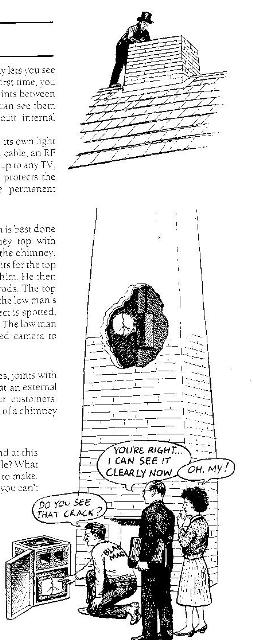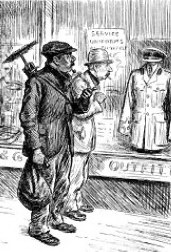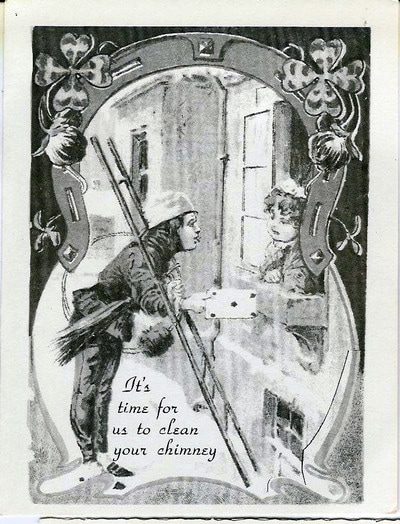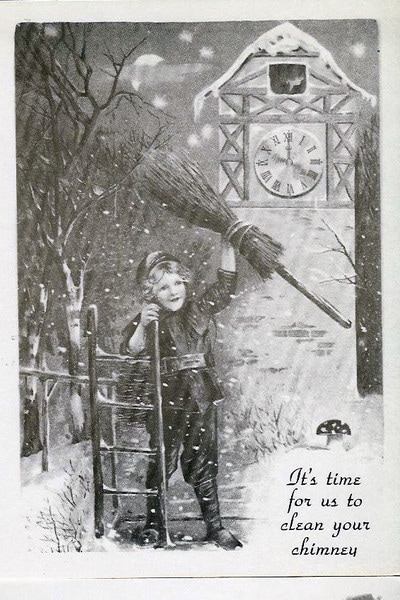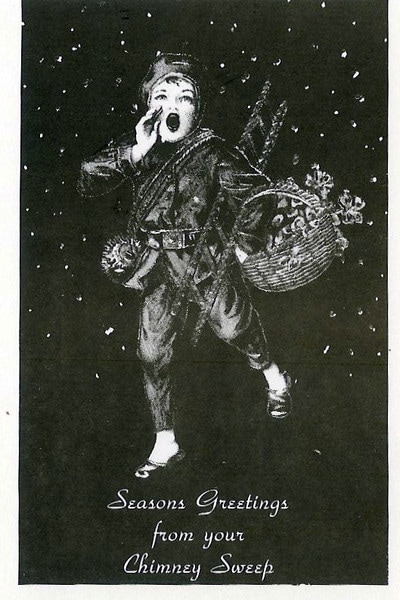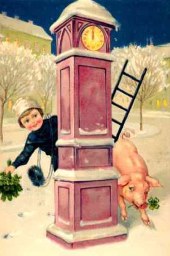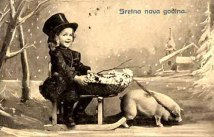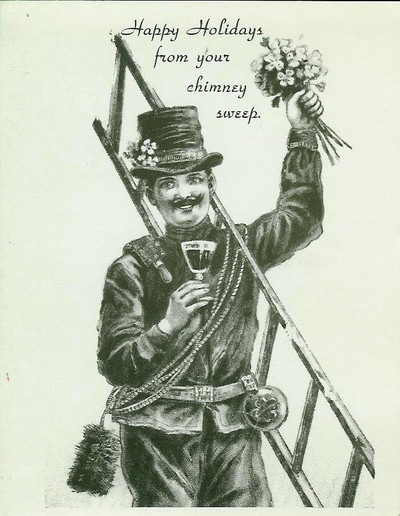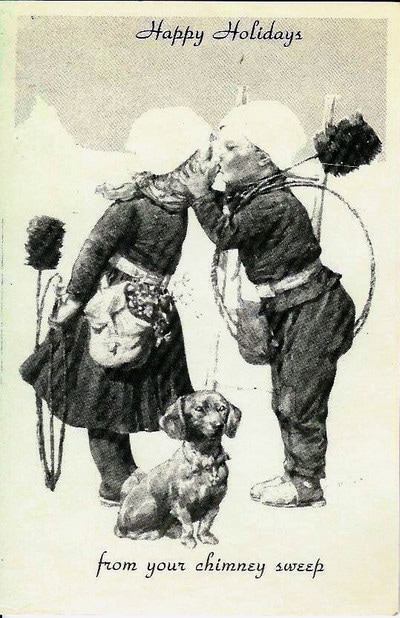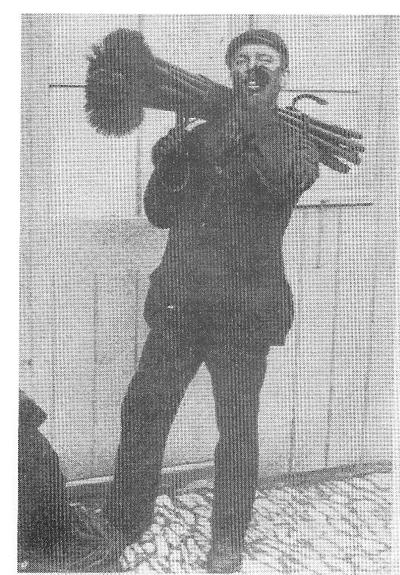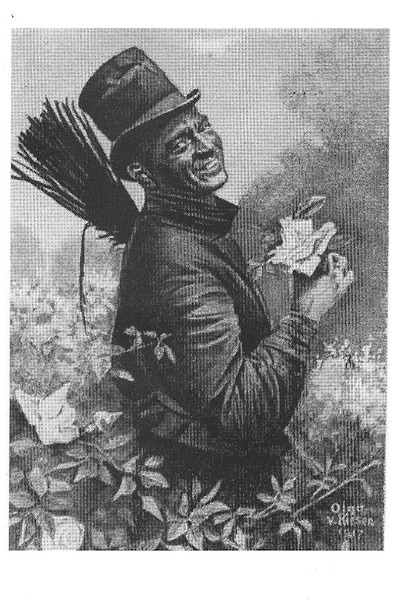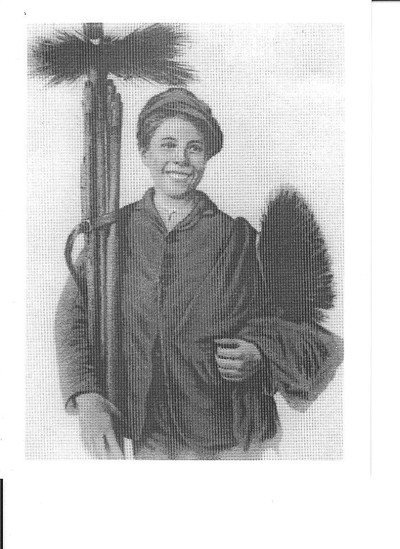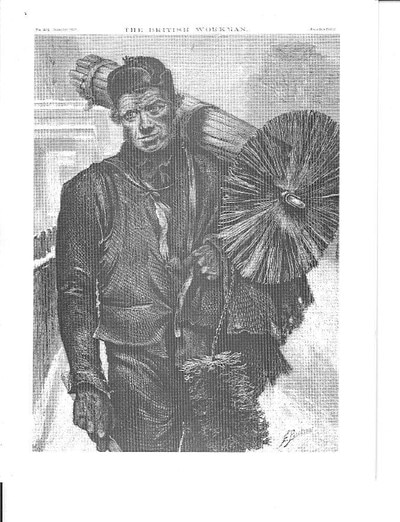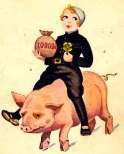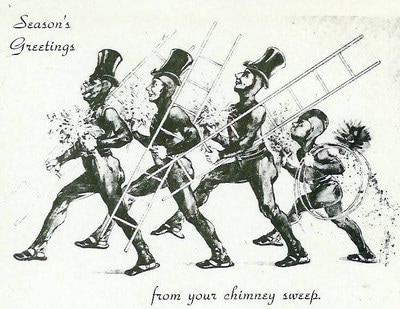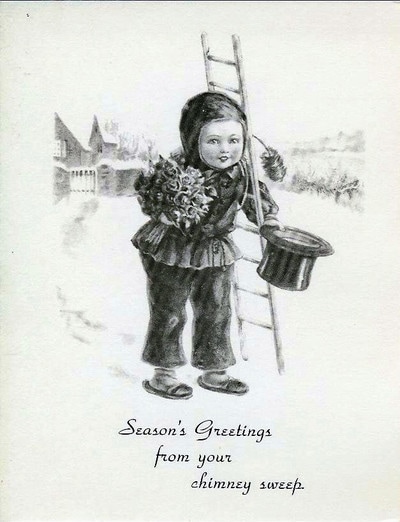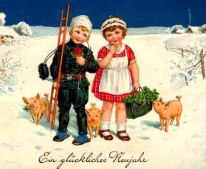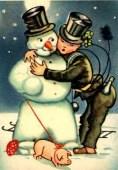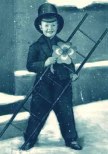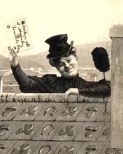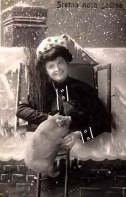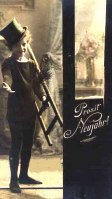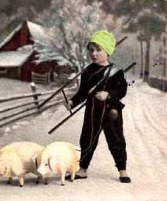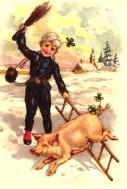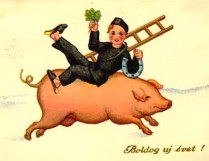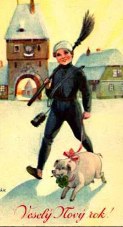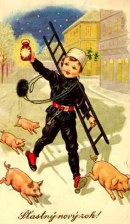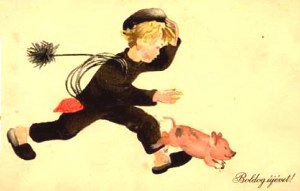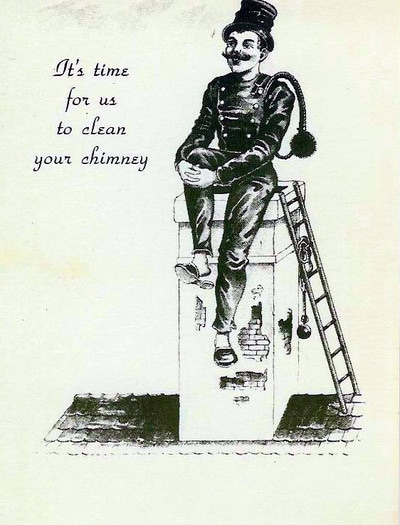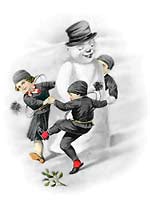SOME MYTHS AND SYMBOLISM ABOUT CHIMNEY SWEEPS FOR YOU TO ENJOY:
|
A chimney sweep's lucky as lucky can be..." Many people will be able to sing along with that song from the Walt Disney version of Mary P. Travers' "Mary Poppins." Still, many don't know that in Germany, Austria, Hungary, and in contiguous regions, the Chimney Sweep is considered a particularly auspicious omen of Good Luck if you meet him on New Year's Day.
Meeting a Chimney Sweep called in German a Schornsteinfeger, Schlotfeger, or Rauchfangkehrer -- at New Year's meant Good Luck for the year, especially if he would give you his card. Today, real Chimney Sweeps are very rare, and thus, meeting one at any time of the year is considered lucky. A Chimney Sweep signifies good luck, wealth, and happiness. Several legends explain why a Chimney Sweep is said to be "The" ultimate bringer of good luck. One version of the legend originates in old England, where King George rode horseback in a royal procession. A dog ran from the crowd, barking and nipping at the King's horse. To the crowd's horror, the horse reared and almost threw the King! A lone figure, shabbily dressed and filthy, stepped into the road. He caught the horse's halter and calmed the animal. As quickly as he appeared, the man faded back into the crowd. The King, wanting to reward the man, asked his name. No one knew the man's name, but many told the King, "He's just a Chimney Sweep!" The King declared that from that day forward..."Chimney Sweeps should be regarded as Lucky!". Another story is of a Chimney Sweep who lost his footing, fell from the roof, and hung from the gutter. A young lady reached through a window and rescued him. They fell in love and married. Over the years, the legend grew in old European folklore. It is said that if a bride passes a Chimney Sweep on her wedding day and he plants a kiss on her cheek, she will receive tremendous luck throughout her marriage. The chimney has been a part of family life since the early Romans realized it was better to live in a nice, fire-warmed home than in a chilly one. They needed a way to funnel off the smoke the fires caused. Centuries later, in medieval times, fireplaces were invented to heat individual rooms and provide a safe place for indoor cooking. Folks soon learned that fireplaces and their chimneys needed a cleaning once in a while. A house full of soot and fumes isn't healthy. Chimney sweeping has developed into a necessary profession and a good one. People liked having the chimney sweep pay a visit. He brought clean, fresh air back to the home. Sweeps are associated with hearth and home, and thus domestic bliss. Chimney Sweeps became a sign of good health and prosperity. |

